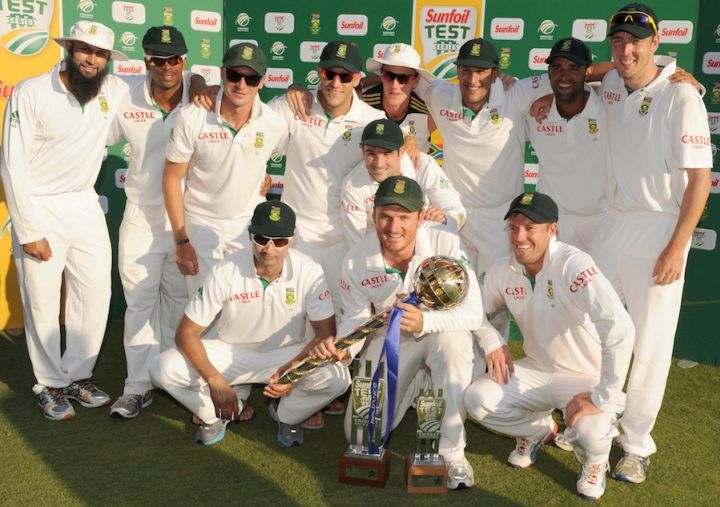Why cricket needs to make touring teams more effective
It might not seem in their best interests to potentially lessen home advantage but international cricket as a whole needs to increase the effectiveness of touring teams

Cricket is a sport of contrasts and contradictions. A team game which can be dominated by great feats of individual achievement. One renowned for its aesthetic beauty, yet one which appeals to the statistical nerd in us all. A sport requiring a dedicated mastery of technique but one that is heavily influenced by factors outside of a player's control - pitch and weather - which can differ markedly from ground to ground and from country to country.
Those differences in conditions are an important aspect of the international game. Test cricket is - to borrow John Peel's description of his favourite band, The Fall - always different, always the same. So while the basics remain unchanged, an overcast morning in Durham asks significantly different questions of a player than an oppressively humid afternoon in Colombo.
For international cricket, that is both a strength and a weakness. The differing pitches and weather found around the globe provide variety but mean that while each series poses different problems for the touring side, it also gives a marked home advantage to players whose experience and technique were forged in the prevailing conditions.
Home advantage doesn't have to be a huge problem, it's a factor in many sports, but what isn't healthy is for that advantage to be so great that touring sides struggle to be competitive. That's bad enough when a one-sided game of T20 ruins an afternoon of cricket, but when the same imbalance happens during a Test series it can mean months of playing out an almost foregone conclusion.
Nothing devalues sport more than a one-sided contest and some recent set-piece Test series have been exactly that. The 4-0 drubbings suffered by India during their last tour of Australia and by Australia themselves in the recently completed return fixture may have been enthusiastically greeted by their respective home crowds, but neither would be objectively ranked as a classic series. That requires the ebb and flow of a close contest; the ability of a touring side to match the opposition in unfamiliar conditions. And currently, South Africa apart, Test cricket lacks teams that can consistently win away from home.
It's a problem with no shortcut solution. Pitches around the globe are no more likely be standardised than the weather. Nor should they be. Spin will always dominate in India, bounce be more prevalent in Australia, and the ball swing that little bit more on an overcast day in England. That's the variety that makes the game so vibrant.
But we can renew efforts to give up-and-coming talent greater experience outside of their own country. To prepare them better for the tests to come.
The current situation seems reliant on inter-board co-operation over A tours, with individual players, trying to progress their game outside that system, left to the whims of administrators. So we have recently witnessed an England side win their first Test series in India for 27 years with two players - Monty Panesar and Jonathan Trott - who gained experience of Indian conditions as part of an England Lions team that participated in the Duleep Trophy in 2008, yet have also seen the BCCI refuse permission for English domestic players to conduct pre-season training in the country.
Similarly Australian Test opener Ed Cowan can take part in an A tour of England in 2012 with no complaint made, but when he and other Australian players organise county contracts for this season they are met with a bewildering labyrinth of visa requirements and the now traditional pre-Ashes tour gripe over the helping out of opposition players.
It's a situation crying out for the guiding hand of the ICC. Financial help is needed to assist some countries support regular A tours, as those national boards that most need to expose their developing talent to overseas practice are the ones least able to afford to do so. Just as importantly, cricket administrators should be helping rather than hindering domestic players find off-season experience overseas, in the process widening the pool of players with the potential to take the step up to international cricket.
That means national boards not standing in way of those who wish to develop their game in unfamiliar conditions. It might not seem in their best interests to potentially lessen home advantage but international cricket as a whole needs to increase the effectiveness of touring teams. As for all the concern over the influence of T20, and the effect on spectator enjoyment of lifeless pitches, the lack of compelling, competitive Test series poses just as big a threat to interest in the ultimate form of the game.
Dave Hawksworth has never sat in a press box or charged a match programme to expenses
Read in App
Elevate your reading experience on ESPNcricinfo App.